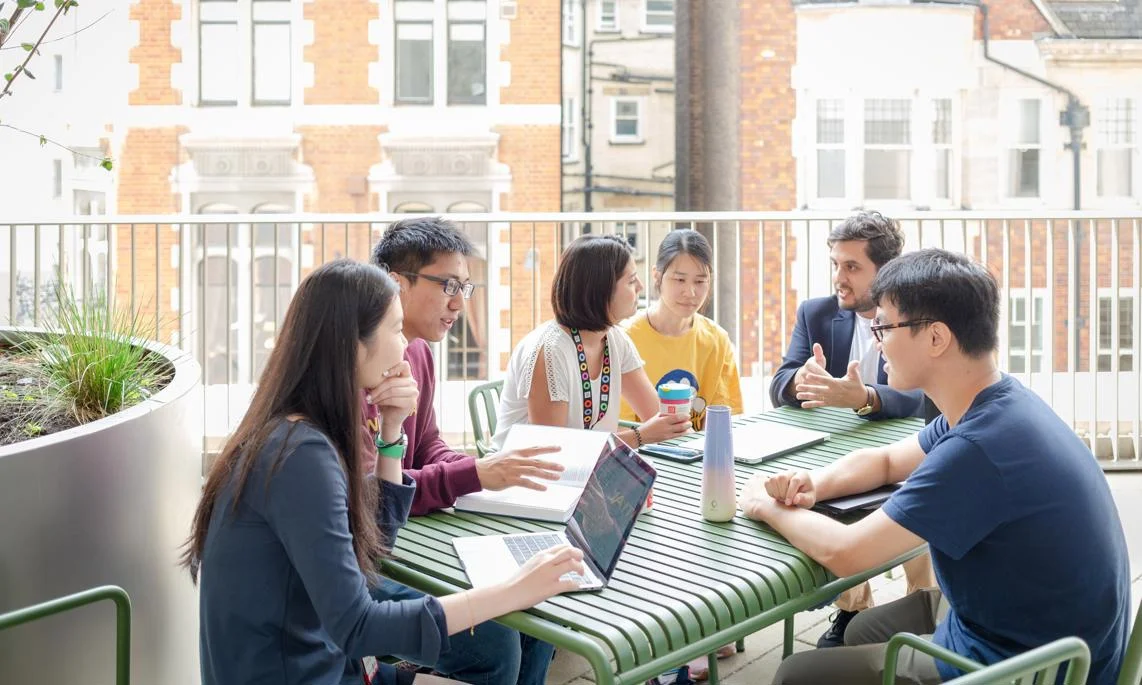Overview
Introduction
This programme offers the chance to undertake a substantial piece of work that's worthy of publication and which makes an original contribution to the field of international history. You'll begin on the MPhil, and will need to meet certain requirements to be upgraded to PhD status.
The Department of International History at LSE is one of the UK's leading centres of historical research. With its emphasis on the international and transnational context of historical developments, we provide a supportive, but challenging environment for those individuals interested in undertaking a research project leading to a PhD in international history. The department currently has about 20 faculty engaged in innovative research who are ideally placed to supervise research students on a wide range of subjects. We can offer a comprehensive range of special areas for research, ranging from the early 16th century to the late 20th century.
Each year we receive a large number of applications from prospective PhD students from across the globe. The department currently has over 35 graduate research students, from virtually every corner of the world, who provide a vibrant and friendly community at the heart of the PhD process. You'll benefit from partaking in research training alongside your academic research, attending and participating in workshops and specialised research seminars, and from access to an unparalleled diversity of archival resources in London. Our graduates teach in some of the best university departments in Britain and overseas, or work in the media, civil service or private and voluntary organisations.
Entry requirements
Taught master’s degree (or equivalent) in a related discipline with at least 67 per cent overall and in the dissertation.
Please select your country from the dropdown list below to find out the entry requirements that apply to you.
Overseas
English language requirements
The English language requirement for this programme is Research. Read more about our English language requirements.
Competition for places at LSE is strong. So, even if you meet the minimum entry requirements, this doesn't guarantee you an offer of a place.
However, please don’t feel deterred from applying – we want to hear from all suitably qualified students. Think carefully about how you can put together the strongest possible application to help you stand out.
Programme content
In addition to progressing with your research, you're expected to take the listed training and transferable skills courses. You may take courses in addition to those listed, and should discuss this with your supervisor.
At the end of your first year, you'll need to satisfy certain requirements and if you meet these, will be retroactively upgraded to PhD status.
Year 1
Year 2
Browse the latest programmes of the International History Research Student Workshop and the International History Research Seminar and the Cold War Research Seminar.
Year 3
Browse the latest programmes of the International History Research Student Workshop and the International History Research Seminar and the Cold War Research Seminar.
Year 4
Browse the latest programmes of the International History Research Student Workshop and the International History Research Seminar and the Cold War Research Seminar.
Why study with us
Discover more about our students and department.
Meet the department
History is a wide ranging and challenging subject to study. It seeks to understand the past and to make sense of the present, adding an important dimension to the understanding of many aspects of human society. The department is world renowned in its field, offering a unique perspective on the history of relations between states, peoples and cultures. We pride ourselves on giving students the benefit of ground-breaking research throughout our teaching programmes.
Our degrees will give you a broad international perspective on the past. We give attention both to domestic and international issues and many of the courses we offer deal with major events in the history of international relations.
Since the behaviour of countries in the international arena cannot be understood without a knowledge of their distinct social, political, economic and cultural characteristics, we provide courses covering major aspects of the history of ideas and mentalities.
LSE was founded in 1895 originally as an institute of higher education for graduate students. The department reflects this tradition and takes its responsibility for undergraduate teaching and supervision very seriously. We admit nearly as many undergraduate students as master's students. We have one of the most cosmopolitan undergraduate communities in London and one of the most vibrant and dynamic.
Learn more about our programmes, research, public events and people.
Who's who
Professor Joanna Lewis

Why LSE
University of the Year 2025 and 1st in the UK in 2025 and 2026
Times and The Sunday Times - Good University Guide 2025 and 20261st in London for the 14th year running
The Complete University Guide - University League Tables 20266th in the world for the study of social sciences and management
QS World University Rankings by Subject 20256th in the world for leading the way in social and environmental sustainability
QS World University Rankings: Sustainability 2026Your application
Overview
We welcome applications for research programmes that complement the academic interests of our staff at LSE. For this reason, we recommend that you take a look at our staff research interests before applying.
We carefully consider each application and take into account all the information included on your form, such as your:
- academic achievement (including existing and pending qualifications)
- statement of academic purpose
- references
- CV
- outline research proposal
- sample of written work.
Applications which demonstrate a pre-existing level of language competence required to complete the PhD will be favoured.
See further information on supporting documents.
You may need to provide evidence of your English language proficiency. See our English language requirements.
Please note that LSE allows part-time PhD study only under limited circumstances. If you wish to study part-time, you should mention this (and the reasons for it) in your statement of academic purpose, and discuss it at interview if you're shortlisted.
Contact us
If you have any queries which are not answered here, please contact the department's PhD Programme Admissions Advisor.
When to apply
The application deadline for this programme is 27 May 2026.
However, if you’d like to be considered for any funding opportunities, you must submit your application (and all supporting documents) by the funding deadline.
See the fees and funding section below for more details.
Fees and funding
The table of fees shows the latest tuition fees for all programmes.
You're charged a fee for your programme. Your tuition fee covers registration and examination fees payable to the School, lectures, classes and individual supervision, lectures given at other colleges under intercollegiate arrangements and, under current arrangements, membership of the Students' Union. It doesn't cover living costs or travel or fieldwork.
Home
Home student fee (2026/27)
The fee is likely to rise over the full duration of the programme. The School charges home research students in line with fee levels recommended by the Research Councils.
Learn more about fee status classification.
Overseas
Overseas student fee (2026/27)
The fee is likely to rise over the full duration of the programme in line with the assumed percentage increase in pay costs (ie, four per cent each year).
Learn more about fee status classification.
Learning and assessment
How you learn
How you're assessed
Progression and assessment
All research students admitted to the department are initially registered for the MPhil degree in their first year. After eight months of study, students who want to be registered for a PhD have to submit the materials required for the upgrade. Most of the work the students undertake with their supervisors during the first year of study is geared toward passing the upgrade exercise.
Students registered for the MPhil/PhD in International History are required in their first year to attend the department's research training programme HY501 – International History MPhil/PhD Research Training Workshop. The purpose of this workshop is to familiarise new MPhil/PhD students with the practical research and writing skills necessary for the preparation of a first-rate PhD thesis in history, and to discuss some general methodological and theoretical issues in international history as a research field. Students are also advised to attend relevant seminars organised within the School or in other colleges of the University of London.
In order to be upgraded from MPhil registration to PhD, you must prepare a dossier for submission (three hard copies) in the Spring Term of your first year of study, if you're a full-time student starting in the Autumn Term. The review process is designed to determine whether the student will be able to meet the requirements of a PhD, and whether the chosen topic will be suitable for a doctoral dissertation. The department uses the Code of Practice as a determinant of the general responsibilities of research students and their supervisors. All students should make an effort to familiarise themselves with its contents.
After the first year, we require you to formally report on your progress at least twice a year. If your progress is deemed unsatisfactory by the Doctoral Programme Director or supervisor your position will be assessed and you will not be allowed to continue in the programme.
The department expects that research students will submit their theses within four years and the reviews of your progress are geared to achieving that goal.
Graduate destinations
Overview
Our graduates teach in some of the best university departments in Britain and overseas, or work in the media, civil service or private and voluntary organisations.
LSE history students continue to have one of the best rate of employability and earnings after graduation in the UK. The Complete University Guide 2020 places History at LSE sixth overall for job prospects. Guardian's University 2021 League Tables placed History at LSE in second place for percentage of graduates who find graduate-level jobs, or are in further study at professional or HE level, within 15 months of graduation. The 2019 report on Graduate Outcomes Subject by Provider from the Department for Education places History at LSE top of the table with earnings superior to any other university in the UK, with 2010-11 LSE graduates' median salary at £43,200 five years after graduating.
A report on relative labour market returns, also from the Department for Education, which calculated the difference in earnings by subject and university choice throughout Britain five years after graduation, ranked History at LSE number one in June 2018. The report illustrates the average impact the different universities and subjects would have on the future income of an individual. History at LSE averaged a lifetime earnings boost of £14,000 for men and £15,000 for women when compared with studying history at any other university in the UK, including Oxford, St Andrews, Cambridge, KCL and UCL.
Further information on graduate destinations for this programme
Career support
From CV workshops through to careers fairs, LSE offers lots of information and support to help you make that all-important step from education into work.
Many of the UK’s top employers give careers presentations at the School during the year and there are numerous workshops covering topics such as job hunting, managing interviews, writing a cover letter and using LinkedIn.
See LSE Careers for further details.
